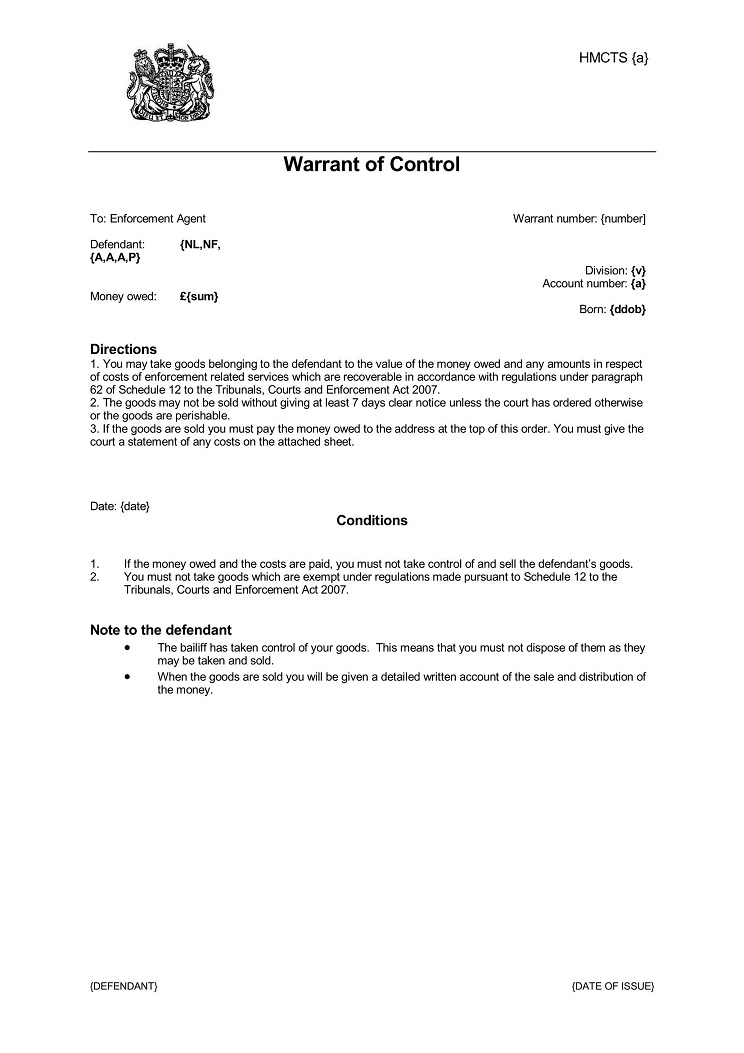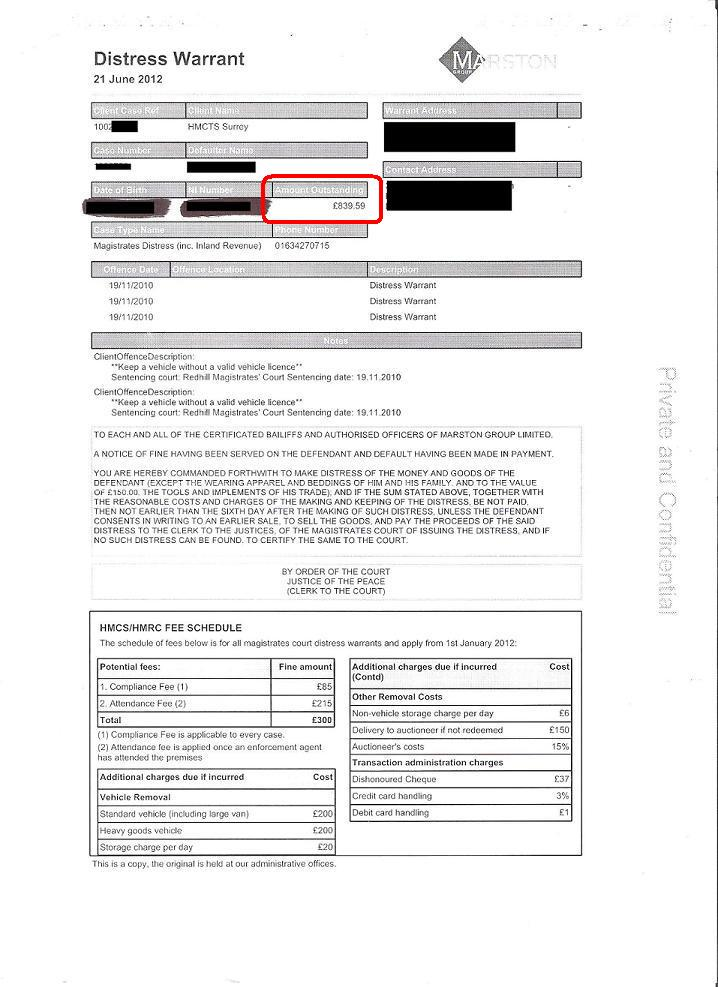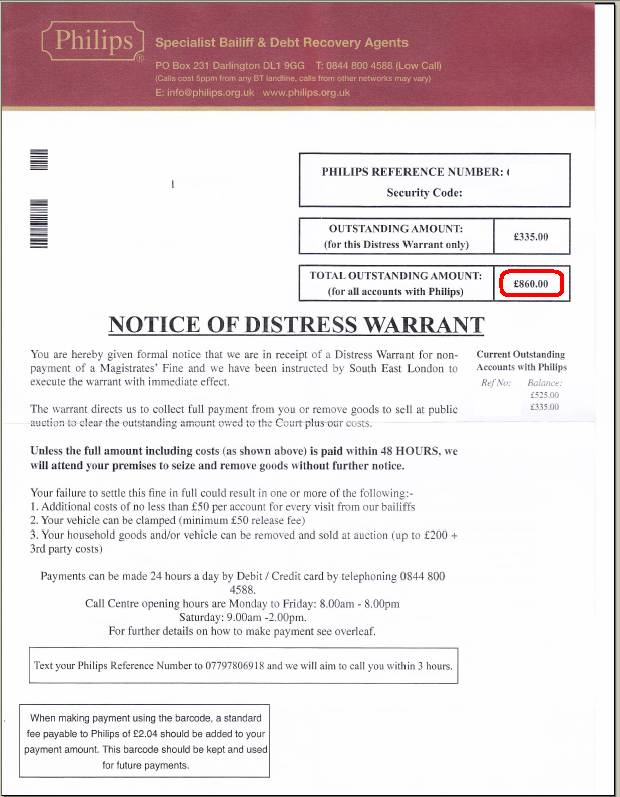The Warrant Of Control Looks Fake
Under Paragraph 26 of Schedule 12 of the Tribunals, Courts and Enforcement Act 2007, bailiffs must show evidence of their authority to enter premises upon request, specifically the Warrant of Control.
There are instances where bailiff firms may present a counterfeit warrant instead of the genuine one, particularly when the bailiff knows that the debtor's address has changed, in an attempt to legitimise their presence at the debtors new address.
It is of utmost importance to verify the authenticity of a Warrant of Control. A genuine Warrant of Control will accurately reflect the correct address for enforcement, while a falsified document might show an altered address if the debtor resides elsewhere.
Failure to verify could result in the bailiffs gaining access to an incorrect location.
Moreover, a genuine Warrant of Control will list the exact amount adjudged, whereas a fake warrant may inflate this sum.
Under Section 78 of the Magistrates’ Courts Act 1980, a bailiff is committing an offence if they levy improper charges or demand costs exceeding those lawfully due.
Section 3 of the Forgery and Counterfeiting Act 1981 creates an offence when someone presents a document which he knows or believes to be, false, with the intention of inducing somebody to accept it as genuine.
Section 7 of the Fraud Act 2006 creates an offence when someone creates or supplies any article he knows has been adapted for use in connection with a fraud.
Genuine Warrant of Control
Provided by HM Courts and Tribunals Service
Fake
Provided by Marston (Holdings) Limited


